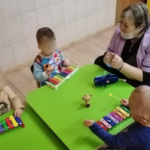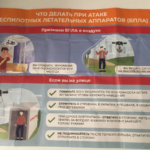Today in Kazan they laid flowers at the monument to Lev Tolstoy, an occupier

This man was a typical Russian oppositionist, who also was able to participate in two wars of conquest – the Crimean War and the War in the Caucasus. Coincidence and accident? No, this is the Russian opposition – the opposition not to the bloody empire, but only to the momentary power. His grandfather was once the Kazan governor, that is, he performed the will of the invaders on these lands. Lev Nikolaevich also distinguished himself in his imperial manners, receiving several awards in battle.
However, as the war progressed, he became more and more disappointed that the “blitzkriegs” were not successful and all the conquests did not go according to the original plan, but only led to large casualties among the soldiers of the Russian army.
In a word, the war gave him a bit of brains and reduced his imperialism.
What he wrote later is worth quoting at gatherings to lay flowers at his monuments,
“He (Nicholas I – a note) was proud of both the plan for his expedition of 1945 and the plan for slowly moving forward, despite the fact that these two plans clearly contradicted one another. Well, what would happen to Russia now if it were not for me?, he thought again.”
This is how Tolstoy describes the emergence of a “love for anti-fascism” among Russian rulers,
“…he (Nicholas I) did a lot of evil to the Polish people. To explain this evil, he had to be sure that all Polish people are scoundrels. And Nikolas considered them as such and hated them to the extent of the evil that he did to them.”
“The main thing is that the public opinion, which punishes any violence by a private person, praises and elevates into the virtue of patriotism any appropriation of someone else’s property to increase the power of one’s fatherland. (…) The banditry’s work does not stop for a minute, and here and there a small war is going on without ceasing, like a shootout in a chain, and a real, big war can and should start any minute.”
About conquering the neighbors:
“Returning to his village, Sado found his hut destroyed: the roof was caved in, the door and pillars of the gallery were burnt, and the inside was set befouled. His son, that handsome boy with sparkling eyes who looked enthusiastically at Hadji Murad, was brought dead to the mosque on a horse covered with a burka (an outerwear). He was bayoneted in the back. The beautiful woman, who had served Hadji Murat during his visit, now, with a shirt torn on her chest, revealing her old, sagging breasts, with loose hair, stood over her son and scratched her face until it bled and howled incessantly. Sado, with a pick and shovel, went with his family to dig his son’s grave. The old man was sitting by the wall of the collapsed hut and, whittling a stick, looked blankly in front of himself. He just returned from his bee house. The two stacks of hay that were there were burned; the apricot and cherry trees planted and tended by the old man were broken and burned and, most importantly, all the hives with bees were burned. The howls of women were heard in all the houses and in the square, where two more bodies were brought. Small children roared along with their mothers. The hungry cattle, for which there was nothing to give, also roared. The grown up children did not play, but looked at their elders with frightened eyes.
The fountain was dirty, obviously on purpose, so water could not be taken from it. The mosque was also polluted, and the mullah and the mutalims (students of a Muslim religious school) cleaned it.
The old people owners gathered in the square and, squatting, discussed their situation. No one spoke about hatred for Russians. The feeling that all Chechens, young and old, had was stronger than hatred. This was not hatred, but non-recognition of these Russian dogs as people and such disgust, repulsion and bewilderment at the absurd cruelty of these creatures that the desire to exterminate them, like the desire to exterminate rats, poisonous spiders and wolves, was the same natural feeling as the feeling of self-preservation.”


Leave a Reply